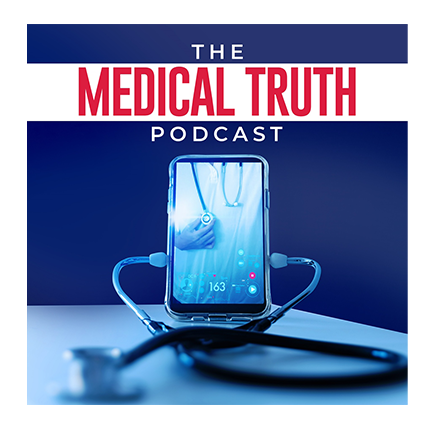In a recent episode of the Medical Truth Podcast, James Roguski, a diligent researcher, shared his alarming findings regarding the proposed amendments to the International Health Regulations (IHR) by the Biden administration. These amendments, if adopted, could have far-reaching consequences for global pandemic responses and individuals’ rights. This blog post delves into James’ insights, highlighting the concerns and implications surrounding these proposed changes.
Established in 1969, the International Health Regulations serve as guidelines for 194 member nations and are overseen by the World Health Organization (WHO). The IHR provide a framework for monitoring and reporting disease outbreaks and public health emergencies, requiring each member nation to have a National IHR Focal Point responsible for reporting unusual events to the WHO.
James discovered the Biden administration’s proposed amendments to the IHR, prompting him to investigate further. These amendments introduce significant changes to the existing regulations. Notably, the process for accepting or rejecting these amendments differs from typical international agreements. Unless a nation explicitly rejects the amendments within an 18-month period, they are assumed to accept them.
Of concern to James is the consolidation of power within the WHO, where unelected delegates make decisions on international law without being held accountable to the people or national governments. This shift raises constitutional concerns, as power moves from elected representatives to the executive branch. Moreover, the proposed changes expand the WHO’s scope beyond health issues, potentially encroaching into areas such as global warming.
James raises questions about WHO funding, revealing that a substantial portion comes from voluntary contributions by member nations and organizations like the Bill and Melinda Gates Foundation. Such donations often come with strings attached, allowing donors to influence the utilization of funds. This funding model’s transparency and potential for corruption are points of concern, as funds could be directed towards programs benefiting specific companies or individuals.
James discusses the WHO CA Plus, a framework convention that surpasses the traditional notion of a treaty. This agreement establishes an independent bureaucracy, granting significant decision-making power to participating parties, including pharmaceutical companies and contributing nations. The “plus” element allows for the addition of protocols without requiring individual nation approval or ratification, potentially leading to unchecked expansion of the agreement’s scope and authority.
James emphasizes the importance of reading and understanding the actual documents related to the proposed amendments. Misinformation and misconceptions abound, necessitating critical analysis. Individuals must be informed about the potential consequences of these changes and question the need for centralized control over their health decisions.
The WHO’s announcement of operationalizing the system being negotiated raises concerns about the intentions of global health authorities. Constructing the system before reaching an agreement questions the necessity of centralized control and prompts individuals to contemplate whether they want their health decisions dictated by a global authority.
The International Health Regulations, contrary to their benign name, prioritize control over individuals’ well-being. Discussions within the regulations revolve around intellectual property, logistics, distribution networks, and benefit sharing systems, revealing financial interests rather than a sole focus on personal health.
Negotiations highlight the struggle between equity and financial gain. The concept of a pathogen access benefit sharing system (PABs) has emerged, where nations providing genetic sequences of pathogens would receive benefits from resulting drugs or treatments. Disputes have arisen when countries that shared genetic sequences related to the Omicron variant witnessed others profiting from their contributions. These negotiations underscore the financial motivations behind global health regulations. Psychological Warfare and Distractions:
In the battle for control, psychological warfare plays a role, with distractions and misinformation campaigns hindering a comprehensive understanding of the true intentions behind these regulations. The media, entertainment, and influential forces work tirelessly to shape public opinion and manipulate the narrative, making it challenging for individuals to discern the actual impact until it is too late.
Constitutional attorneys and individuals must stand up to protect their rights and freedoms. It is essential to recognize that no authority has the right to dictate what individuals do with their bodies. Pushing back against these regulations requires grassroots efforts, with resistance taking place at the state, county, and local levels. The fight against global health regulations becomes a battle for people’s minds, challenging collective thinking that has allowed the erosion of rights and freedoms.
James’ research on the proposed amendments to the International Health Regulations sheds light on the potential implications and concerns surrounding these changes. It highlights the need for individuals to be well-informed, critically analyze the proposed amendments, and question the erosion of personal rights and freedoms. The battle for control over global health regulations calls for collective action and grassroots efforts to protect individual autonomy and well-being.







